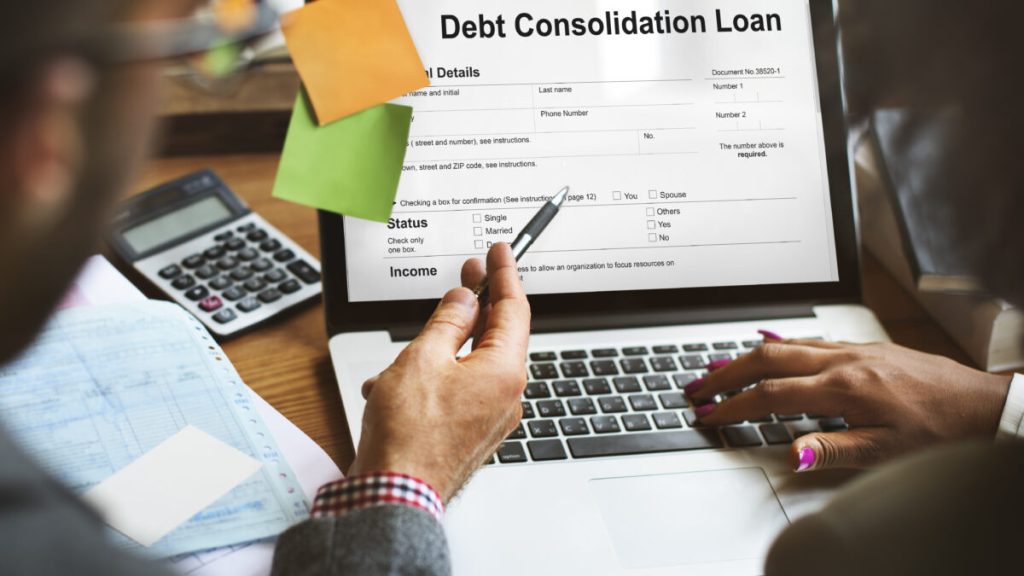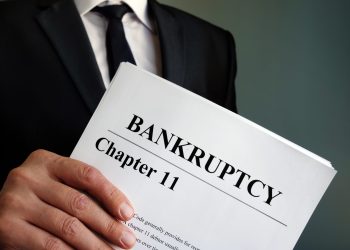
Are you feeling overwhelmed by multiple debts and a less-than-stellar credit score? You’re not alone. Many Americans struggle with managing their finances, especially when faced with unexpected expenses or economic downturns. But there’s hope on the horizon: debt consolidation loans for bad credit could be your ticket to financial stability. In this comprehensive guide, we’ll explore how these loans can help you regain control of your finances, even if your credit history isn’t perfect.
The Debt Dilemma: A Common American Story
Before we dive into the solutions, let’s acknowledge the reality many face. According to a recent study by the Federal Reserve, the average American household carries $6,270 in credit card debt. When you factor in other forms of debt like personal loans, medical bills, and overdue utilities, it’s easy to see how quickly the situation can become unmanageable.
READ ALSO: A Comprehensive Guide to Refinancing for Lower Mortgage Interest Rates in America
For those with bad credit, the situation often feels hopeless. Traditional lenders may turn you away, leaving you feeling trapped in a cycle of high-interest payments and mounting debt. But don’t lose heart – there are options designed specifically for people in your situation.
Understanding Debt Consolidation Loans for Bad Credit
Debt consolidation loans for bad credit are financial products that allow you to combine multiple debts into a single loan, often with a lower interest rate and more manageable monthly payments. These loans are tailored for individuals with credit scores that fall below the “good” range (typically under 670 on the FICO scale).
How They Work
- You apply for a loan that covers the total amount of your existing debts.
- If approved, the lender pays off your existing debts directly.
- You’re left with a single loan to repay, usually with better terms than your previous debts.
The Benefits
- Simplified Payments: Instead of juggling multiple due dates and creditors, you make one payment each month.
- Potential for Lower Interest Rates: Even with bad credit, you might secure a lower overall interest rate than what you’re currently paying.
- Fixed Repayment Schedule: Most consolidation loans have fixed terms, giving you a clear path to becoming debt-free.
- Potential Credit Score Improvement: As you make consistent payments, your credit score may improve over time.
Comparing Your Options: The Debt Consolidation Loan Landscape
To help you navigate the world of debt consolidation loans for bad credit, we’ve compiled a comprehensive comparison table of some popular options. Remember, terms and availability may vary, so always check with the lender for the most up-to-date information.
Lender | APR Range | Loan Amounts | Term Length | Min. Credit Score | Unique Features |
|---|---|---|---|---|---|
Upstart | 6.70% – 35.99% | $1,000 – $50,000 | 3 or 5 years | 300 | Uses AI for underwriting, considers education and job history |
OneMain Financial | 18.00% – 35.99% | $1,500 – $20,000 | 2 to 5 years | No minimum | Offers secured loan options, same-day funding possible |
Avant | 9.95% – 35.99% | $2,000 – $35,000 | 2 to 5 years | 580 | Mobile app for loan management, flexible payment options |
LendingClub | 8.05% – 36.00% | $1,000 – $40,000 | 3 or 5 years | 600 | Peer-to-peer lending platform, joint applications allowed |
Upgrade | 8.49% – 35.97% | $1,000 – $50,000 | 2 to 7 years | 560 | Free credit monitoring, hardship programs available |
Making the Right Choice: Factors to Consider
Choosing the right debt consolidation loan requires careful consideration. Here are some key factors to keep in mind:
- APR (Annual Percentage Rate): This represents the true cost of borrowing, including interest and fees. Look for the lowest APR you can qualify for.
- Loan Terms: Consider how long you’ll be repaying the loan. Longer terms mean lower monthly payments but more interest paid overall.
- Fees: Watch out for origination fees, prepayment penalties, and late payment fees. These can significantly impact the overall cost of your loan.
- Lender Reputation: Research lenders thoroughly. Check reviews on trusted sites like Trustpilot or the Better Business Bureau (BBB).
- Additional Features: Some lenders offer perks like free credit score monitoring or flexible payment options. These can add value to your loan experience.
The Application Process: What to Expect
Applying for a debt consolidation loan with bad credit may seem daunting, but being prepared can make the process smoother. Here’s what you’ll typically need:
- Proof of income (pay stubs, tax returns)
- Bank statements
- Identification (driver’s license, passport)
- List of current debts and creditors
Many lenders offer online applications that can provide a decision within minutes. Some may require a hard credit check, which can temporarily impact your credit score. However, multiple inquiries for the same type of loan within a short period (usually 14-45 days) are often counted as a single inquiry.
Beyond the Loan: Strategies for Long-Term Financial Health
While a debt consolidation loan can be a powerful tool, it’s just one part of a comprehensive financial wellness plan. Consider these additional strategies:
- Create a Budget: Use tools like Mint or YNAB to track your spending and identify areas for improvement.
- Build an Emergency Fund: Aim to save 3-6 months of living expenses to avoid future debt cycles.
- Improve Your Credit Score: Consistently making on-time payments and keeping your credit utilization low can help boost your score over time.
- Seek Financial Education: Websites like Khan Academy offer free courses on personal finance.
- Consider Credit Counseling: Organizations like the National Foundation for Credit Counseling can provide personalized advice and resources.
Real Stories, Real Results
To illustrate the potential impact of debt consolidation loans, let’s look at a real-world example:
Sarah, a 32-year-old teacher from Ohio, found herself $15,000 in credit card debt after a series of medical emergencies. With interest rates averaging 22% across her cards, she was barely making a dent in her principal. After researching her options, Sarah applied for a debt consolidation loan through Upstart. Despite her credit score of 620, she was approved for a $15,000 loan at 15% APR for 3 years. This reduced her monthly payments by $150 and put her on track to be debt-free in 3 years instead of the 10+ years she was facing before.
Sarah’s story is just one example of how debt consolidation loans can make a significant difference. While individual results may vary, many borrowers find these loans to be a crucial stepping stone toward financial stability.
Frequently Asked Questions
To address some common concerns, here are answers to five frequently asked questions about debt consolidation loans for bad credit:
- Q: Will applying for a debt consolidation loan hurt my credit score?
A: Initially, there may be a small dip due to the hard credit inquiry. However, if you make consistent payments on your new loan, your credit score may improve over time as you reduce your overall debt and establish a positive payment history. - Q: What if I’m denied for a debt consolidation loan?
A: Don’t lose hope. Consider alternatives like secured loans, finding a co-signer, or working with a credit counseling agency to explore other debt relief options. You can also work on improving your credit score before reapplying. - Q: How long does it take to get approved and receive funds?
A: The timeline varies by lender. Some online lenders offer same-day or next-day funding after approval. Traditional banks may take a few days to a week. Be sure to ask about the funding timeline when comparing lenders. - Q: Can I use a debt consolidation loan to pay off all types of debt?
A: Most unsecured debts like credit cards, medical bills, and personal loans can be consolidated. However, secured debts like mortgages or car loans typically cannot be included in a debt consolidation loan. - Q: Is debt consolidation the same as debt settlement?
A: No, they’re different strategies. Debt consolidation combines multiple debts into one loan, which you repay in full. Debt settlement involves negotiating with creditors to pay less than what you owe, often with negative impacts on your credit score.
The Road to Financial Freedom: A Personal Journey
Embarking on the path to debt consolidation is more than just a financial decision – it’s a commitment to your future self. As you consider your options, remember that this is a personal journey. What works for one person may not be the best solution for another.
Take the time to reflect on your financial goals, both short-term and long-term. Are you looking to improve your credit score? Reduce monthly payments? Become debt-free by a certain date? Your answers to these questions will guide you toward the best solution for your unique situation.
Community Support and Resources
Remember, you’re not alone in this journey. Many others have walked this path before you and are willing to share their experiences. Consider joining online communities like r/personalfinance on Reddit or the myFICO forums to connect with others, share tips, and find support.
Additionally, many non-profit organizations offer free or low-cost financial counseling. The Association for Financial Counseling & Planning Education provides a directory of certified financial counselors who can offer personalized advice.
The Bottom Line: Your Path to Financial Freedom
Debt consolidation loans for bad credit can be a powerful tool in your financial arsenal, offering a path to simplify your debts and potentially save money on interest. However, they’re not a magic solution. Success requires commitment, discipline, and often a change in financial habits.
As you explore your options, remember to:
- Do your research and compare multiple lenders
- Read the fine print and understand all terms and conditions
- Have a plan for managing your finances after consolidation
- Seek professional advice if you’re unsure about any aspect of the process
With the right approach and a commitment to your financial health, you can use a debt consolidation loan as a stepping stone to a brighter, more stable financial future. The journey may not always be easy, but the destination – financial freedom – is well worth the effort.
Remember, every step you take toward managing your debt is a step toward a more secure financial future. Whether you decide to pursue a debt consolidation loan or explore other options, the most important thing is that you’re taking action. Your future self will thank you for the efforts you make today.






